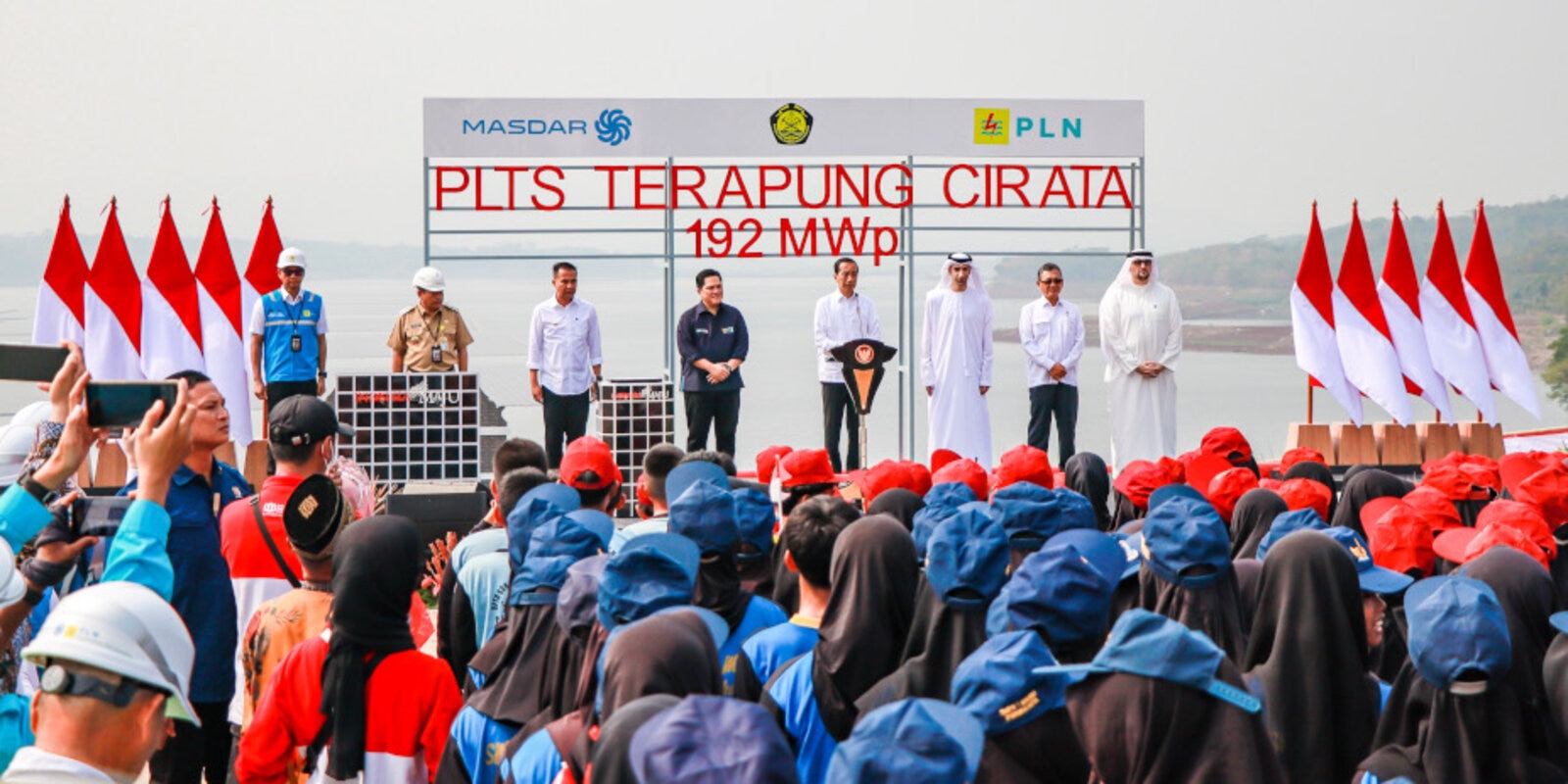Masdar inaugurates 145 MW floating solar plant in Indonesia

Masdar inaugurates long awaited floating solar plant in Indonesia: UAE renewables giant Masdar has begun operating its 145 MW Cirata floating solar plant in Indonesia and will begin selling its generated energy to Indonesia’s utility company PLN Nusantara Power, according to a statement released on Thursday. The plant — the largest of its kind in Southeast Asia and the third largest globally — will power 50k homes and displace 214k tons of CO2 emissions, according to the statement.
The details: The plant was developed by both Masdar and PLN at an investment cost of IDR 1.7 tn (USD 108.7 mn), Reuters reported on Thursday. Masdar first signed the power purchase agreement with PLN back in 2020, marking the company’s first entrance into the FPV market. The plant occupies 4% of the surface of the Cirata reservoir, which is 108 kms southeast of Indonesia’s capital Jakarta.
There’s more to come: Masdar signed an agreement with PLN in September to expand the Cirata plant with an additional 500 MW capacity of floating solar. The new agreement came after Indonesia issued regulations allocating up to 20% of water coverage for renewable energy operations, the company noted at the time. Masdar did not reveal the expected investment ticket for the upcoming phase yet, but the first stage is estimated to have a USD 145 mn price tag.
Why floating solar is a good move: Installing offshore solar panels would resolve the many challenges faced in regions worldwide in terms of available land and adequate space that doesn’t require deforestation. Adding solar systems on existing reservoirs could allow more than 6k cities around the world to develop self-sufficient power systems, a paper published in Nature journal earlier this year found. The water’s cooling effect on the floating panels can also make them more efficient, while reducing evaporation — and thus loss of fresh water supply — from the shade created by the panels, Masdar said.
But it’s pricier and tougher to maintain: Challenges that offshore solar developers are yet to overcome include higher costs of development — which are around 40% more expensive than panels installed on land — and corrosion from salts or strong winds.
Masdar is interested in other Indonesian ventures: Earlier in February, Masdar acquired shares in the geothermal unit of Indonesian government-owned geothermal utility Pertamina, which controls 82% of Indonesia's installed geothermal energy capacity and manages 13 geothermal energy projects generating 1.87 GW of electricity.